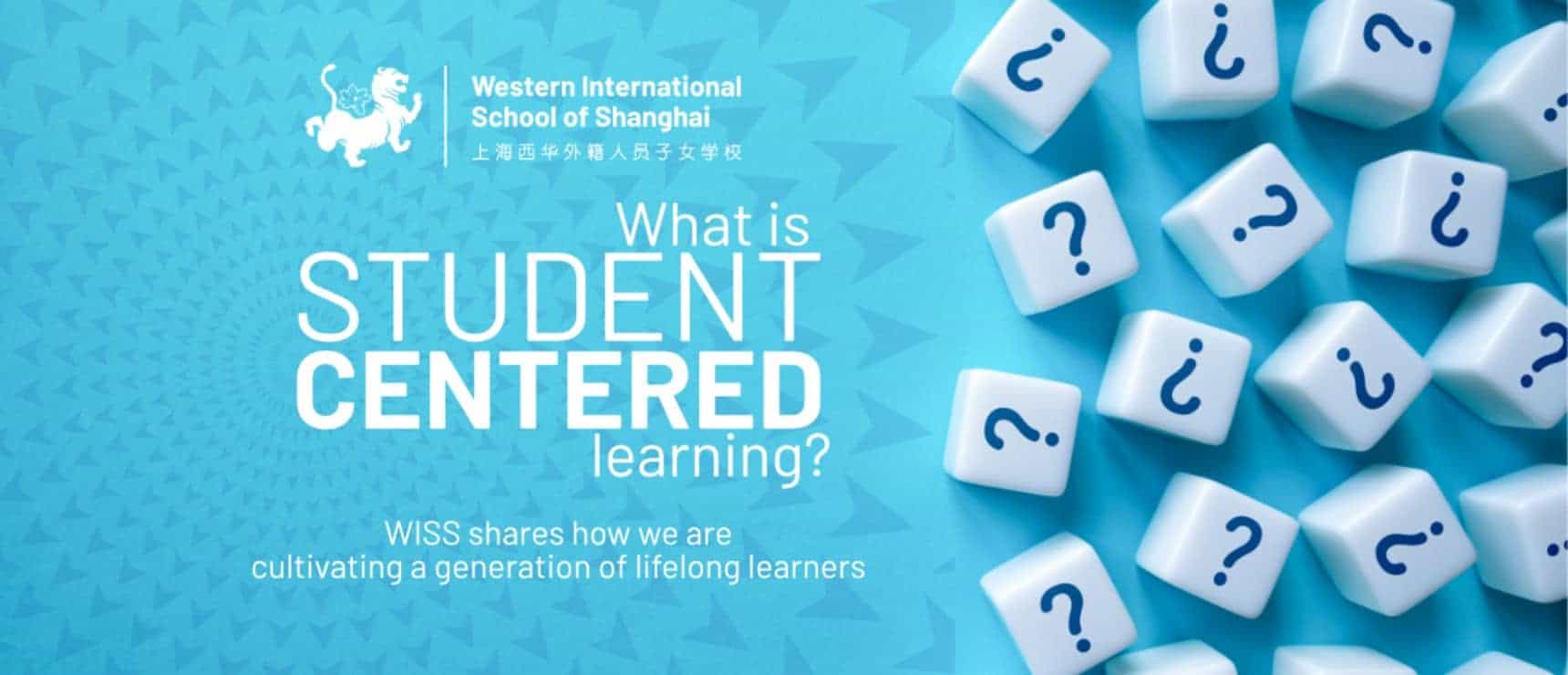The Western International School of Shanghai (WISS) stands out as a leader in international education, particularly through its commitment to a student-centered learning approach. This educational philosophy emphasizes the active participation of students in their own learning processes, fostering independence, critical thinking, and a sense of ownership over their education. This article examines how WISS implements this approach across various grade levels, empowering students to inquire, think independently, and drive their learning.
Understanding Student-Centered Learning
Student-centered learning shifts the focus from traditional teacher-led instruction to a model where students are co-creators of their educational experience. This approach encourages students to engage deeply with the material, make choices about their learning, and take responsibility for their academic journeys. At WISS, this philosophy is woven into the fabric of the curriculum and school culture, aligning with the principles of the International Baccalaureate (IB) programs offered at the school.
Implementation Across Grade Levels
Elementary School (Pre-Nursery to Grade 5)
WISS emphasizes inquiry-based learning in the Lower, Middle, and Upper Elementary through the IB Primary Years Programme (IBPYP). Young learners are encouraged to explore their interests through hands-on activities and projects that connect to real-world issues. For example, students might engage in a unit of inquiry where they investigate local environmental challenges, allowing them to ask questions, conduct research, and present their findings. This not only fosters curiosity but also develops critical thinking skills as students learn to analyze information and draw conclusions.
Lower Secondary School (Grades 6 – 10)
As students transition to the IB Middle Years Programme (IBMYP), the student-centered approach continues to evolve. Here, learners are given more autonomy in their projects and assessments. For instance, students might work collaboratively on interdisciplinary projects that require them to apply knowledge from multiple subject areas. They are encouraged to set personal learning goals, choose their research topics, and decide how to present their findings. This level of choice enhances engagement and motivation as students see the relevance of their work to their own lives and interests.
Upper Secondary School
In the Diploma Programme (IBDP) and Career-related Programme (IBCP), students at WISS are further empowered to take charge of their learning. They engage in self-directed research for their Extended Essays, where they choose a topic of personal interest and conduct independent investigations. This process requires them to formulate research questions, gather and analyze data, and reflect on their findings. Additionally, the IBCP allows students to integrate academic studies with career-related experiences, enabling them to apply their learning in practical contexts. This blend of academic rigor and real-world application prepares students for both higher education and future careers.
Benefits of the Student-Centered Approach
The student-centered learning approach at WISS yields numerous benefits:
1. Enhanced Engagement
Student-centered learning actively involves students in their education, making them partners in the learning process. This engagement leads to higher motivation levels as students take ownership of their learning, resulting in a more dynamic and interactive classroom environment. When students are allowed to explore topics that interest them, they are more likely to participate actively in discussions and activities.
2. Development of Critical Thinking:
By encouraging inquiry and exploration, students are encouraged to analyze, evaluate, and synthesize information rather than simply memorize facts. By engaging in project-based tasks and collaborative work, students develop essential problem-solving skills that prepare them for real-world challenges. This emphasis on critical thinking is crucial for their academic success and future careers.
3. Personalized Learning Experiences
Student-centered learning allows for a tailored educational experience that accommodates individual learning styles and paces. Teachers can adapt their instruction to meet the diverse needs of their students, ensuring that each learner receives the support necessary to thrive. This customization fosters a more inclusive learning environment.
4. Stronger Relationships
In a student-centered environment, teachers act as facilitators and mentors rather than traditional lecturers. This shift fosters more robust relationships between teachers and students as educators become more attuned to individual needs and interests. The mentorship model fosters stronger student-teacher relationships, creating a supportive learning environment where students feel valued and understood.
5. Preparation for Future Challenges
By focusing on skills such as collaboration, communication, and adaptability, student-centered learning prepares students for the complexities of the modern world. They learn to work effectively in teams, think critically about problems, and apply their knowledge in practical situations, making them better equipped for future careers.
6. Better Retention of Knowledge
Active involvement in learning activities leads to improved retention of information. When students engage with the material through discussions, projects, and hands-on experiences, they are more likely to understand and remember what they have learned. This depth of understanding contributes to long-term academic success.
7. Cultivates Independence and Responsibility
As students take charge of their learning, they learn to set personal goals, manage their time, and reflect on their progress. This independence cultivates a sense of responsibility, empowering students to become self-directed learners capable of navigating their educational journeys.
8. Increased Motivation and Enjoyment
When students have a say in their learning and can pursue topics that interest them, they are more likely to enjoy their educational experience. This intrinsic motivation leads to a lifelong love of learning, encouraging students to seek knowledge beyond the classroom.
The Western International School of Shanghai exemplifies the principles of student-centered learning through its innovative and flexible educational practices. By placing students at the heart of the learning process, WISS not only nurtures academic excellence but also prepares students to be inquisitive, independent thinkers ready to tackle the challenges of the future. This approach is not just about imparting knowledge; it is about cultivating a generation of lifelong learners who are equipped to thrive in an ever-changing world.

